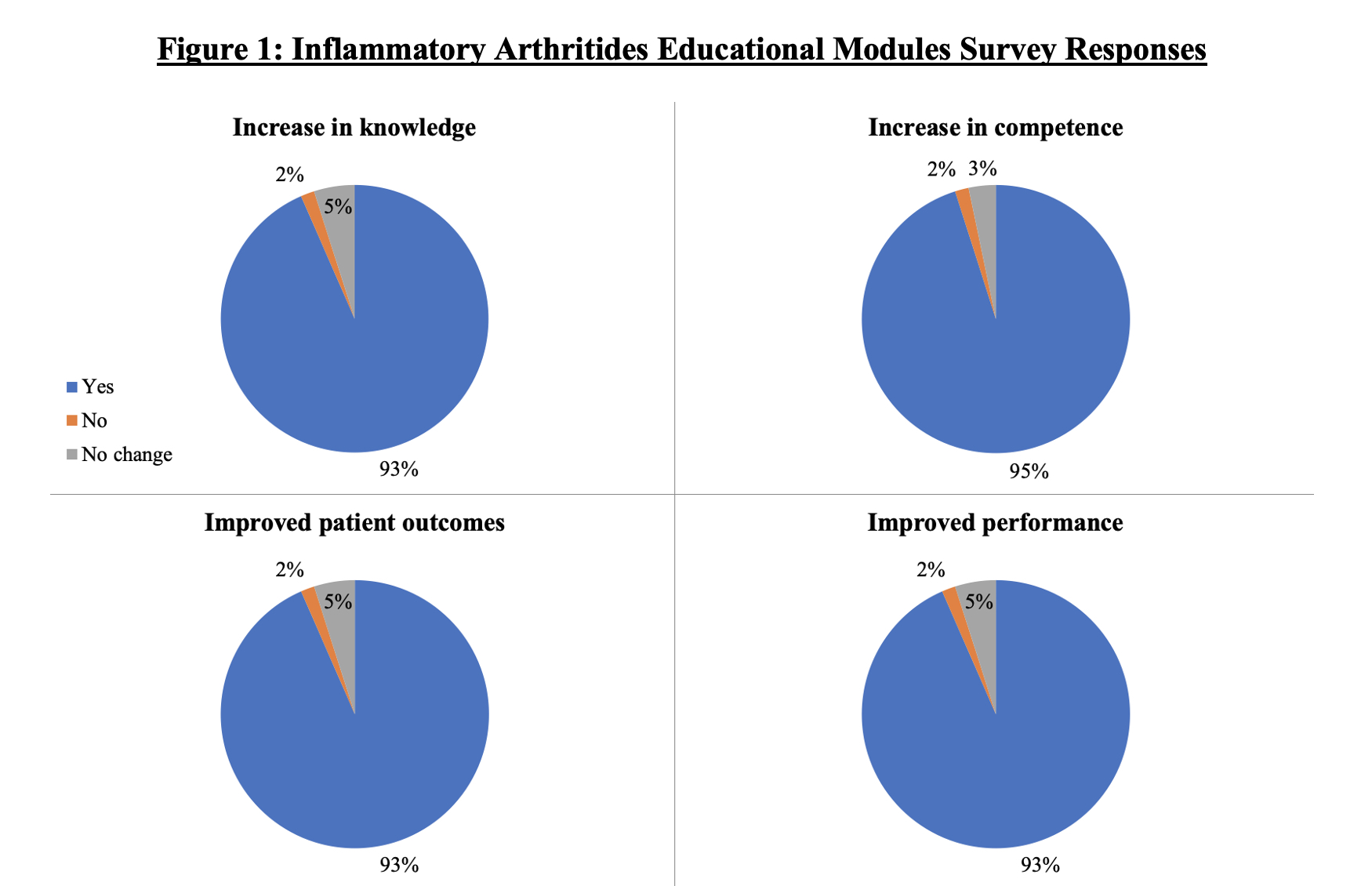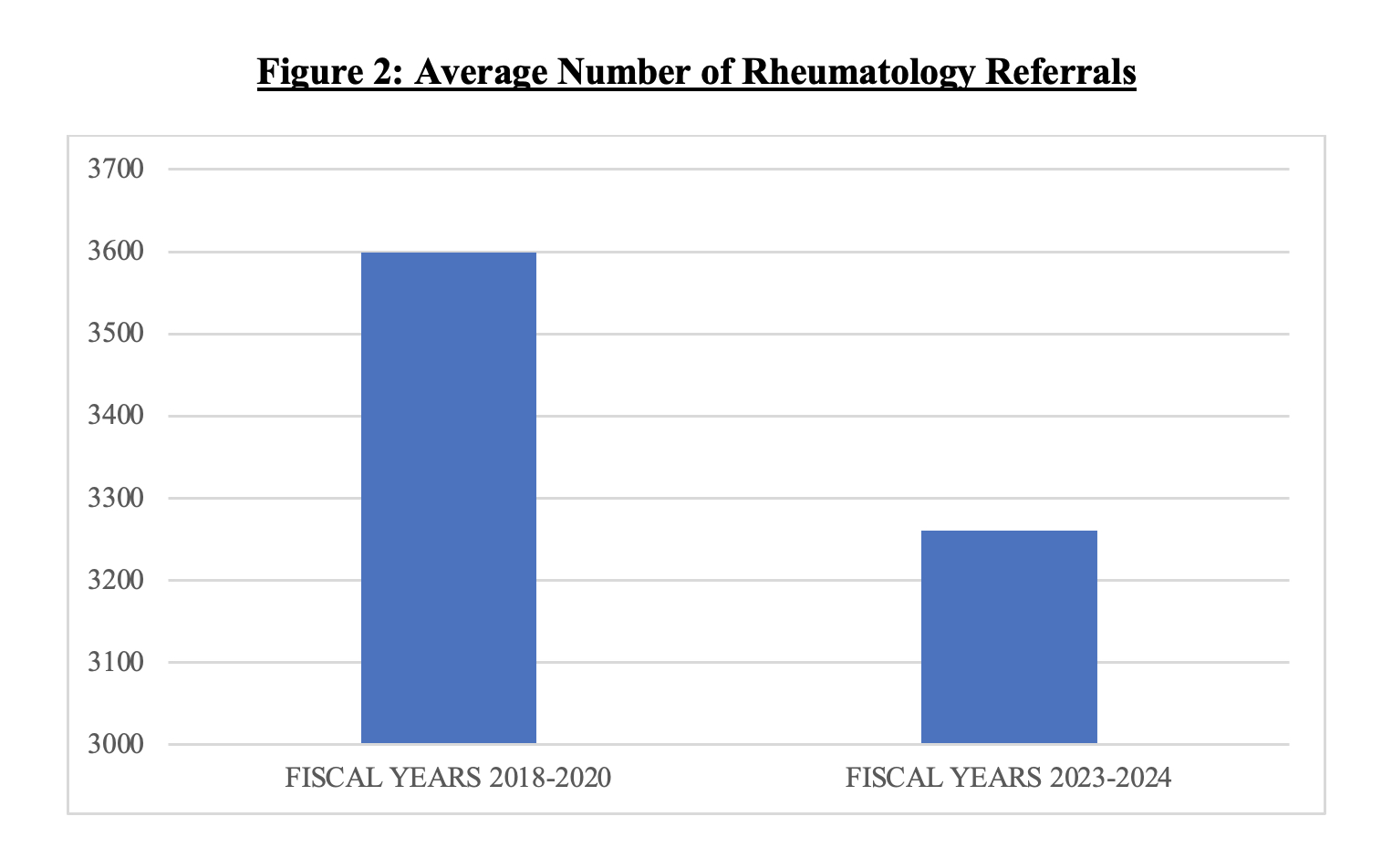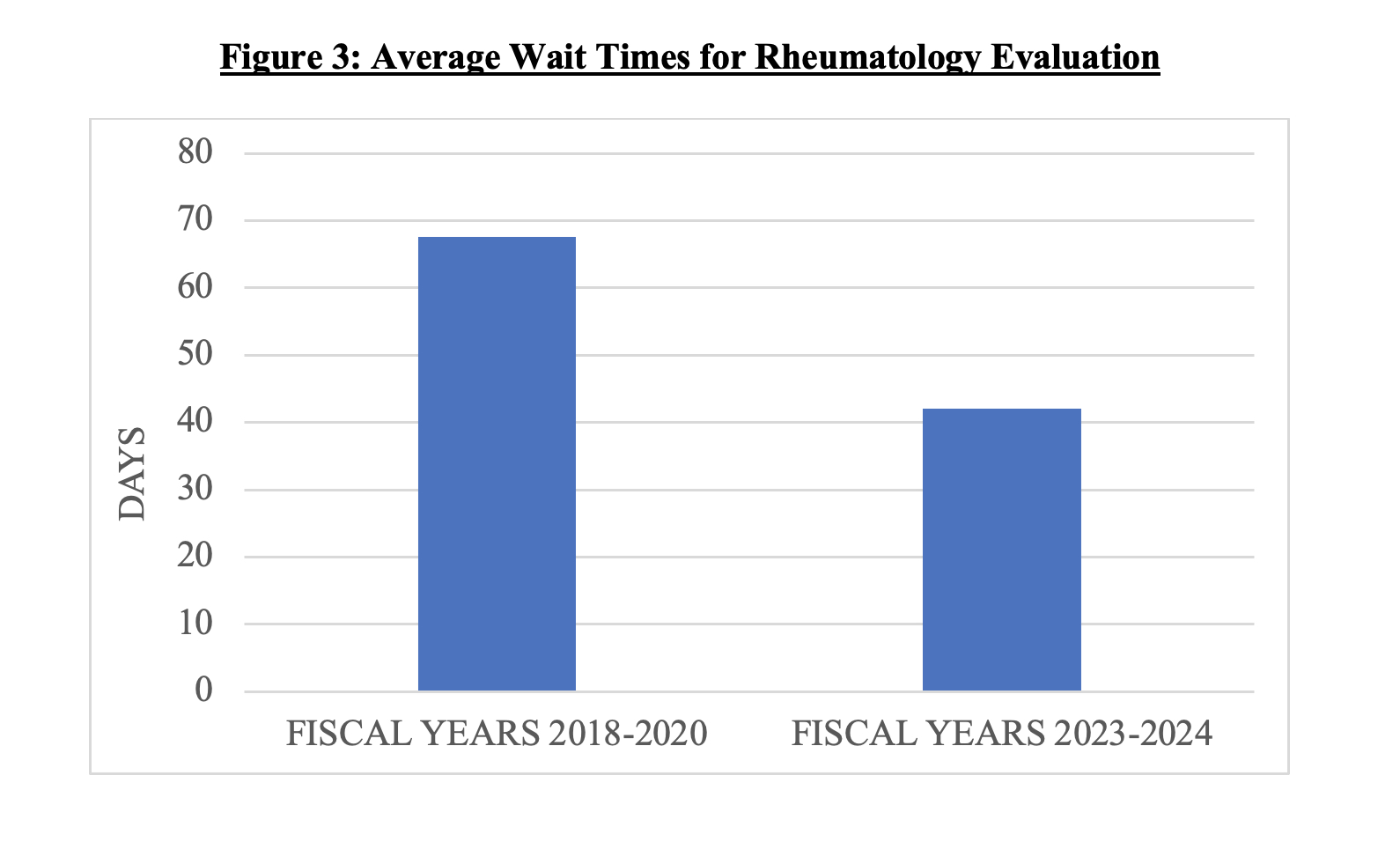Session Information
Session Type: Poster Session B
Session Time: 10:30AM-12:30PM
Background/Purpose: Early diagnosis and treatment of inflammatory arthritides [rheumatoid arthritis (RA), psoriatic arthritis (PsA) and ankylosing spondylitis (AS)] are associated with improved patient outcomes. However, primary care physicians and other referring providers express low levels of confidence in recognizing early inflammatory arthritis resulting in delayed referral to the rheumatologist. Thus, we developed educational resources to address the knowledge gap, with the aim of improving the referral process and decreasing wait times for patients with inflammatory arthritis to be seen by a rheumatologist.
Methods: This is an ongoing single-center quality improvement initiative at the University of Rochester Medical Center (URMC). A panel of experts was formed to create educational material and comprised of two rheumatologists, one nurse practitioner and three primary care physicians. Three PowerPoint-based Continuing Medical Education (CME) presentations were created and made available on the University’s Center for Experiential Learning website. These programs are free for all URMC providers and minimal cost ($15) for all others. The educational programs were made to highlight: (1) How to identify early manifestations of RA, PsA and AS (2) Benefits of early diagnosis and treatment (3) Early clinical care and treatment strategies and (4) Contact information for rheumatology referrals. The availability of the programs was publicized by the educational institute, institutional wide e-mails, and personal emails to referring providers. Online surveys were used to evaluate whether the modules increased provider’s knowledge and competence. Additionally, we evaluated theory-based perceptions of improvement in provider’s performance and patient outcomes after reviewing the educational materials. We also compared referral numbers and wait times for a rheumatology evaluation pre- and post-availability of the educational programs.
Results: As of May 2024, a total of 61 healthcare providers have completed the educational program. 93.44% of the providers reported increase in knowledge and 95.08% reported increase in competence (Fig 1). When asked about perceptions regarding whether the module would improve performance and outcomes for future patients with inflammatory arthritides, 93.44% of the providers answered yes (Fig 1). The average number of yearly referrals pre-educational program was 3599 and post-educational program was 3261 (Fig 2). Wait times had decreased pre- and post-educational program from 67.6 to 42.1 days (Fig 3).
Conclusion: Our findings highlight the benefits of specifically tailored, easily accessible and low-cost educational programs in improving the knowledge and competence of providers on inflammatory arthridites. Novel methods that are provider-friendly can help improve provider knowledge and potentially have a positive impact on patient outcome.
To cite this abstract in AMA style:
Kim C, Vertalino V, Kruzer K, Anandarajah A. Effectiveness of Inflammatory Arthritides Educational Modules and Potential for Improved Referral Times [abstract]. Arthritis Rheumatol. 2024; 76 (suppl 9). https://acrabstracts.org/abstract/effectiveness-of-inflammatory-arthritides-educational-modules-and-potential-for-improved-referral-times/. Accessed .« Back to ACR Convergence 2024
ACR Meeting Abstracts - https://acrabstracts.org/abstract/effectiveness-of-inflammatory-arthritides-educational-modules-and-potential-for-improved-referral-times/



